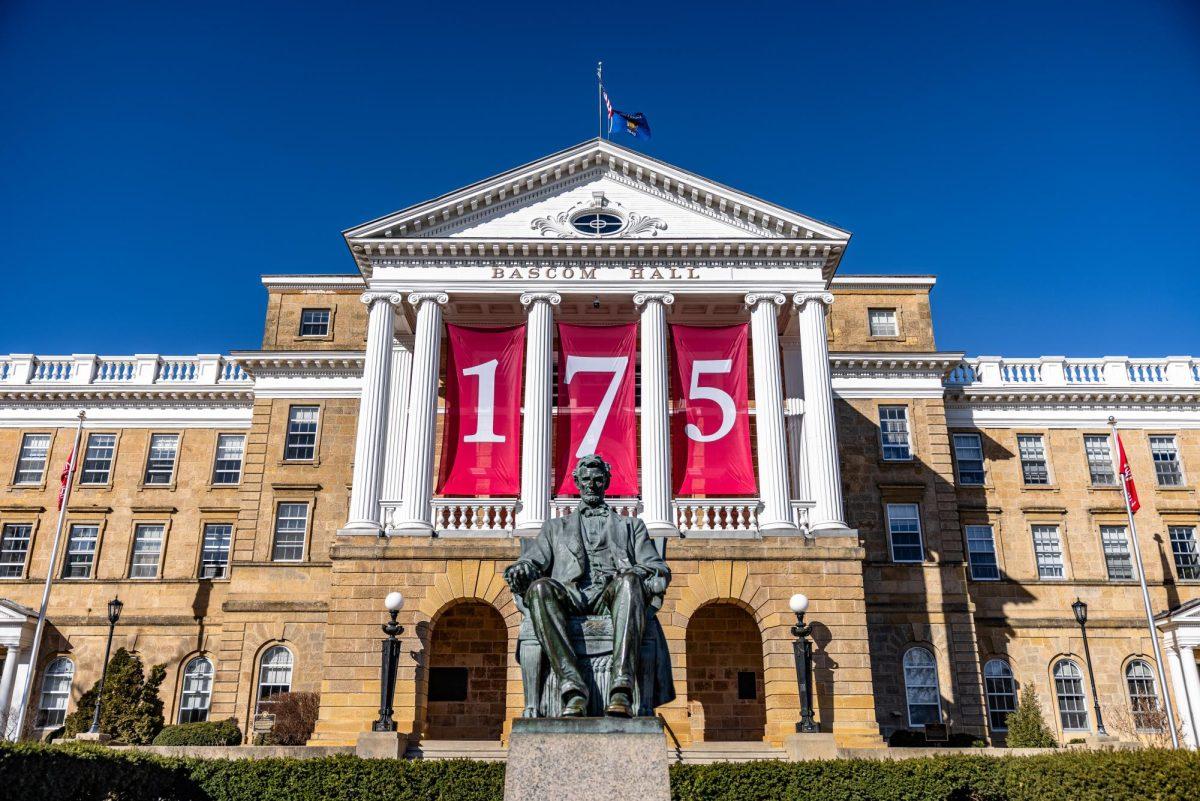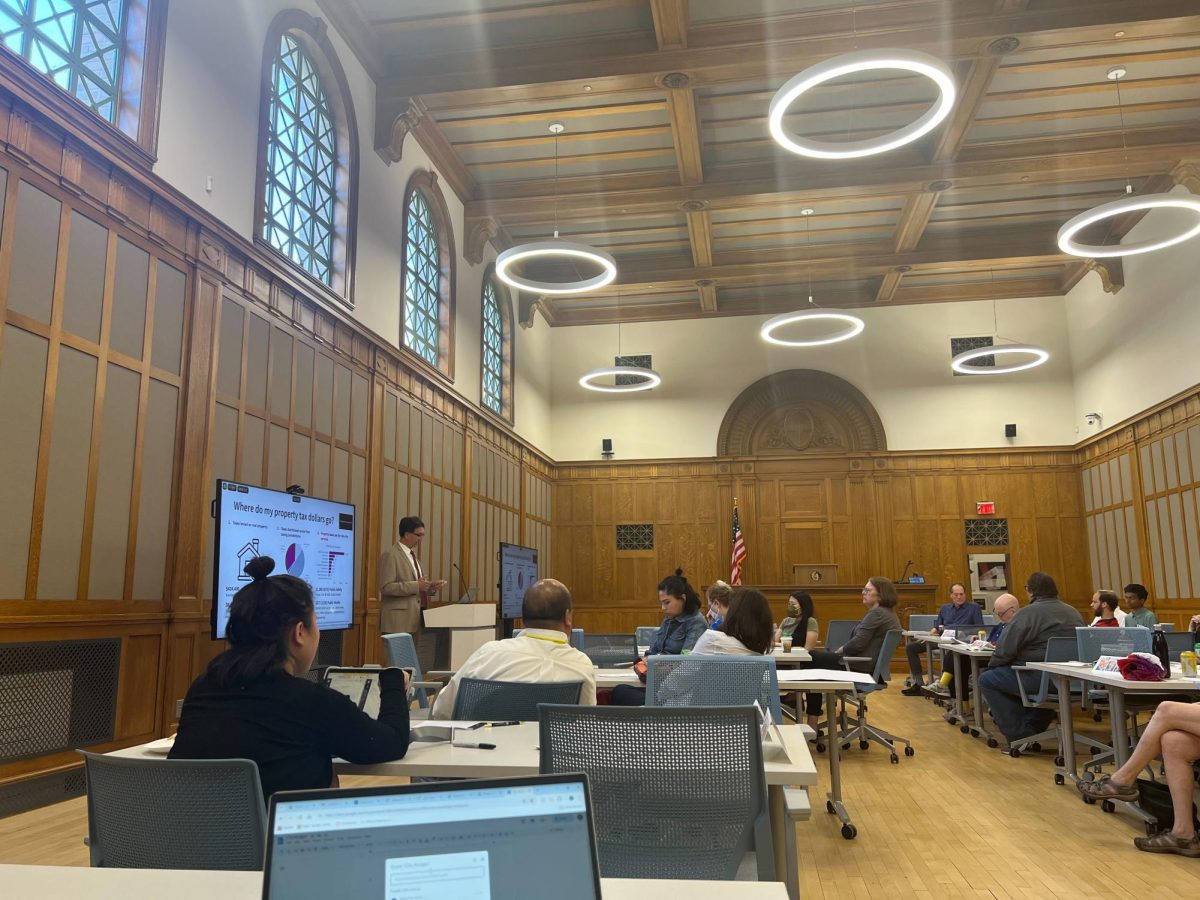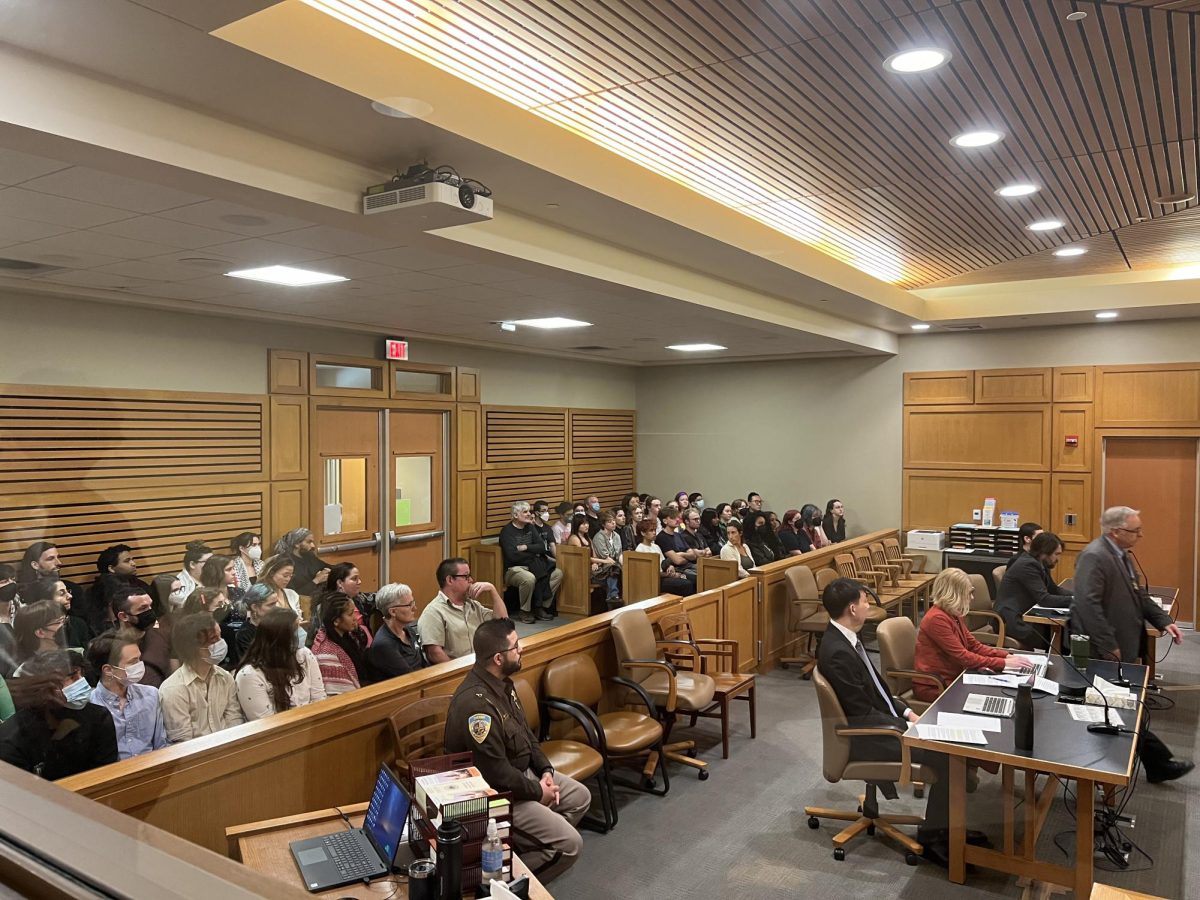UW researchers helping to sniff out bioterror
Michelle Orris
City Editor
Wisconsin public-health officials say bio-terrorism air-monitoring equipment is impractical, but University of Wisconsin researchers are trying to change that.
Robert J. Hamers, a UW chemistry professor, is working to develop a sensor that could detect airborne biological agents like anthrax. He said fluorescent sensors currently in use are too costly and fragile.
“We need new types of sensors we can use continuously, and make them biologically hold up under any ambient conditions,” Hamers said.
Hamers and his research team have developed a durable diamond surface for the sensors, as well as technology to electronically signal the presence of a detected agent. He said the equipment would cost anywhere between $50,000 and $75,000, comparable to the cost of the air-monitoring equipment used today.
“It would be more expensive upfront, but to recover the detection would be very cheap,” Hamers said.
The federal government currently has specific grants set aside to allow state governments to purchase air-monitoring equipment in addition to money already granted for general bio-terrorism preparedness. The federal government and the Center for Disease Control has promised Wisconsin a total of $26 million in 2003 to brace against a potential biological attack.
Wisconsin Bio-Terrorism Preparedness Coordinator Ken Van Horn said that current air-monitoring equipment is too unreliable and expensive and that public health officials wish the allotted federal money would be available for other purposes.
“It only gives a couple of minutes worth of warning, and we’d rather spend the money on preparation plans and stockpiling pharmaceuticals,” Van Horn said. “There are huge maintenance costs, and the equipment is finicky and gives lots of false alarms.”
In the first Gulf War, harmful-agent sensors frequently gave American troops false alarms.
Van Horn said the Wisconsin Public Health Commission staff has considered purchasing the equipment in the future, but most prefer the surveillance alternatives already available. He said the Public Health Commission could request military personnel for air-monitoring during special events, as they did for the U.S. Conference of Mayors in Madison last summer. He said only a few major cities use air-monitoring equipment, including New York.
Hamers said he hopes that new technology would increase the use of air-monitoring equipment locally and in the military. He said his sensors could be “sprinkled” out of an airplane and their durability would produce reliable results.
“The phrase ‘Diamonds Are Forever’ is true, it’s an incredibly stable material and it’s incredibly feasible,” Hamers said. He also said he hopes to team up in the future with corporations to test his technology with substances like anthrax, but milder substance detection is already working in the lab.
“Now I’m trying to make something portable, and make something that detects things that people really care about,” Hamers said. He said the technology could also apply for food safety, to detect substances like e-coli.
“We should have a real prototype within a year,” Hamers said.
Scientists across the country are working to improve the technology, including researchers at Notre Dame, the University of California at San Diego and Penn State.
Iraqi troops have not fired biological or chemical weapons yet in war battles.
Photo available at: http://www.news.wisc.edu/view.html?get=8350








